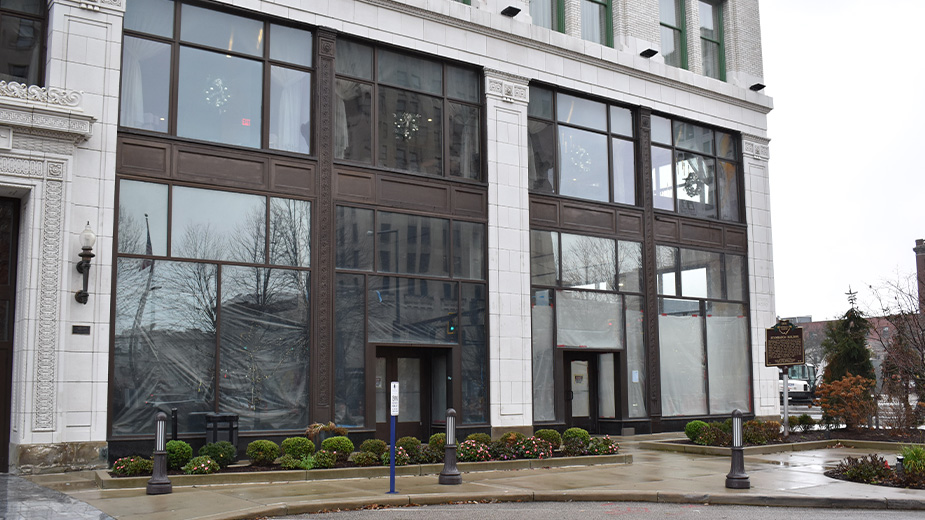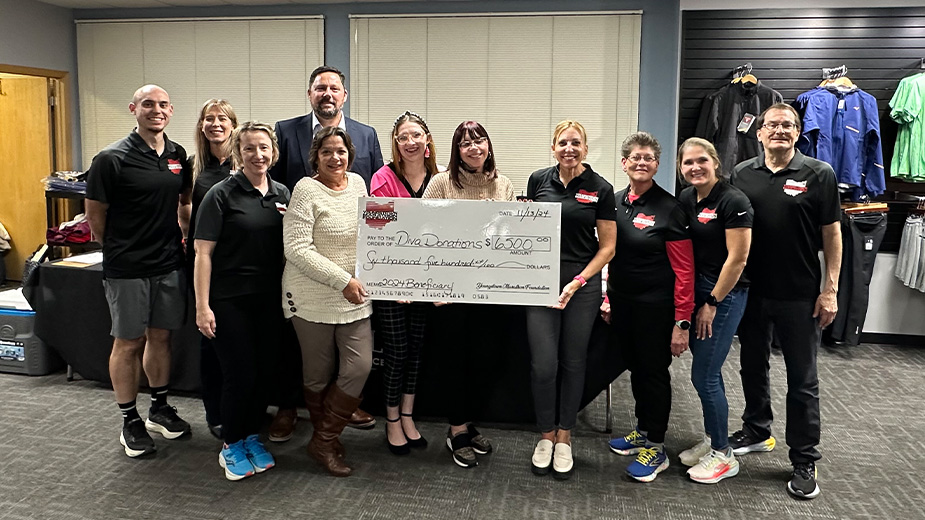Scrap Market Falls as Manufacturers Scale Back
YOUNGSTOWN, Ohio — Pipe and tube mills across the region remain shuttered and forced to scale back production in the wake of the huge drop in oil and gas prices. Meanwhile, the strong U.S. dollar has enabled imports to flow into the country at cheaper prices.
These factors have combined to wallop the very source of modern steel and metal manufacturing across the country: the scrap industry.
“We’re seeing the market drop radically at this point,” observes Gary Clayman, whose family owns Niles Iron & Metal in Niles. “The dollar is one factor, and the export market has fallen dramatically.”
Scrap metal is the lifeblood of the North American steel and metals industry. As of March 10, more than 14.4 million tons of steel had been recycled since the beginning of the year, according to data from the Steel Recycling Institute. Each year, more tons of scrap steel are recycled than aluminum, plastics, paper and glass combined, the trade organization says.
The drop in global demand for scrap has sent prices spiraling downward, affecting those on front lines who deal directly with the commodities.
“Scrap started to drop in November and plunged a great deal between January and February,” Clayman says. “The export market has been weak since 2014, so all of this continues to affect us.”
The price of a single ton of ferrous scrap metal has tumbled $150 since the fall to roughly $200. This, mixed with slackened demand mostly from pipe and tube producers, has put the squeeze on scrap processors and dealers across the region.
“In September, we were getting $370 a gross ton,” says Greg Six Sr., president of Six Recycling in East Liverpool. “In February, we were getting $210.”
Even the prices of reliable nonferrous metals such as copper are hurting at the moment, but are better priced than steel, Six adds. “Copper has softened, and aluminum isn’t real good,” he observes. “Steel dropped $60 a ton in a single month.”
Scrap metal is an important ingredient in the manufacturing process for local mills and in operations around the world. Vallourec Star in Youngstown, for example, uses thousands of tons of scrap steel each year and relies almost entirely on the supply to feed its melting operations. Once the steel is melted, it’s formed into oil country tubular goods, or OCTG, pipe, which is used for field drilling operations in the oil and gas industry.
Other regional mills such as AK Steel and The Timken Co. are dependent on a steady stream of scrap metal to manufacture a wide range of steel products, as are smaller mini-mills designed for specific markets.
Moreover, the quantity of scrap used by Ohio’s steel industry is significant, according to the Ohio Steel Council. In 2014, Ohio steel producers used 7.8 million tons of scrap in turning out 14.5 million tons of new steel products.
Niles Iron and Metal’s Clayman recognizes that the depressed scrap market could turn around soon, and it’s his experience that it probably will once oil and gas prices recover. “We’ve been in business 98 years, so this isn’t the first time,” he says. “In six months it could be totally different.”
Another factor that’s hampered business for local scrap and recycling dealers was the frigid winter that gripped northeastern Ohio. “We were closed for a couple of days,” adds Six Recycling’s Six. “Some of the equipment just wouldn’t work” in the freezing subzero temperatures.
Six notes that he’s paying between $100 and $250 for scrapped automobiles in this market. His regular scrap customers – those who fill their trucks several times a day with discarded metal and sell it to Six Recycling – are having to increase volumes to cover the lower price points.
“I have 20 to 30 regulars and that’s all they do,” Six notes. “As prices fall, they get a lot less.” In a good market, these scrappers can command $100 per truckload of metal, depending on the type of metal and its weight. Now, the takeaway is much less, he says.
Weather is always a factor in the metals and materials recycling business, observes Kenny Greco, president of Southside Recycling, Youngstown, a division of The Ken Greco Co. in Boardman. It was one reason that Greco moved forward with an idea to launch in September the region’s first indoor, drive-thru scrap yard.
“Most scrap yards are muddy, full of glass, and you can easily get a flat tire,” he says. “The floor here is clean.” Plus, inclement weather such as cold or rain can delay a salvage delivery, he says.
Southside Recycling occupies 6,400 square feet of space in a warehouse on Florida Avenue. The operation accepts scrap metal such as household appliances, old computers and various electronics. It does not, Greco emphasizes, accept automobiles.
“We buy any metal – copper, aluminum, steel – and we’re one of the only electronics recyclers,” Greco says.
On a cold afternoon in early March, a customer in a small van pulls into Southside’s ingress bay. Employee Andrew Kemmer unloads an old dryer from the back and a few other small items. “We pay a flat rate of $9 for a refrigerator and freezer, $10 for a washer or dryer,” he says.
All other materials are weighed at a small station at the front of the warehouse and are priced at the going market rate, Kemmer says. All of the prices and weights are listed on a monitor so that the customer can see for himself that his payout is accurate. “We pay 10 cents a pound for computer towers, 20 cents a pound for laptops,” he notes.
Once the items are weighed and checked in – and the customer’s record is determined clean – the party is paid, the van moves forward, and turns out the exit bay.
“You have to have a license and you cannot be convicted of theft” to do business with Southside, Greco emphasizes. The company works closely with local police who supply a “do not buy” list that contains reported stolen items and all of those who have been arrested for theft. Each customer is photographed, and security cameras cover every square inch of the premises, both inside and outside.
Once the floor is filled with enough electronics waste – circuit boards, for example, are separated and stored in requisite bins – the material is packaged and loaded onto a truck bound for a center in Cleveland that specializes in this type of recycling.
“They’ll separate wires, chips, boards – they even know how to get the gold out of them,” he says. “They don’t go into a landfill, and people can make a little bit of money in the process.”
The company does not pay for computer monitors, but does ensure that they are disposed of properly.
The metal scrap goes to the buyer who will pay the best price, Greco says. “Aluminum is still pretty good; copper and stainless are OK,” he observes.
Greco says that Southside Recycling provides another market to move into when the general steel scrap business is down. His company also operates a large scrap yard on Wilson Avenue in Youngstown, and the HR Evans Co. in East Palestine.
“Demand isn’t good at all” in the steel scrap market, Greco reports. “Some mills are doing OK, but we’re diversified enough so we can move our business to accommodate these markets.”
Still, activity at Southside Recycling has been fairly strong since the operation opened in September, Greco says. “The weather’s been a factor, but we’ve probably had more business since we’re located inside,” he says. “We’re the first drive-thru scrap yard.”
Pictured: Kenny Greco opened the region’s first indoor scrapyard in September.
Copyright 2024 The Business Journal, Youngstown, Ohio.



